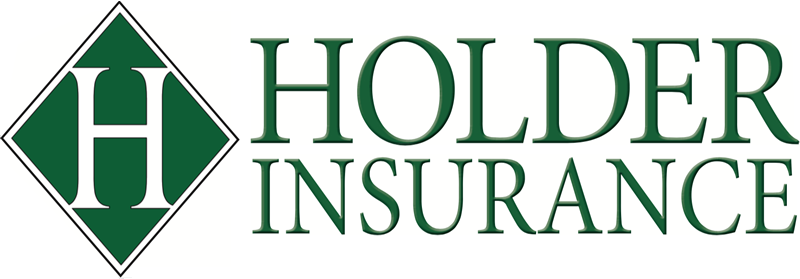Medicare Insurance
from Holder Insurance Agency
Medicare Insurance
As you approach Medicare eligibility you probably feel very popular—everybody is calling you and mailing you information. After a few weeks of looking at a stack of material, you probably feel more confused than ever. This booklet was designed to make things simple, so that you may begin to understand how Medicare works, how supplemental insurance fits into the picture, and how to wade through the myriad of alternate options available.
Medicare is the government-run health insurance program for those age 65 and older or those under 65 with certain disabilities. Medicare is the largest health insurance plan in the country with more than 50 million Americans participating.
Can you answer YES to at least one of the following statements?
- I am 65 years of age or older.
- I am under 65, but I have certain disabilities.
- I have end-stage renal disease (kidney failure that requires a transplant or dialysis).
If so, it is likely that you are eligible for Medicare benefits.
Quick Facts on Medicare
- Generally, a person can enroll in Medicare three months before and after their 65th birthday. You are known as a Medicare "beneficiary."
- You will receive your Medicare card automatically if you are receiving Social Security or Railroad Retirement benefits.
- You can enroll in Medicare through the Social Security Administration by calling 1-800-772-1213.
- Medicare has enrollment periods. You must enroll when you are eligible, however, if you are working you may delay enrollment in some situations.
- You do not have to be currently receiving Social Security benefits to sign up for Medicare. They are separate benefits.
- You may not need all parts of Medicare if you have insurance from your employer and plan to continue working.
- September: Medicare & You Handbooks are be mailed to all beneficiaries.
- October: Medicare Tool Finder data renewed.
- There have been many changes to the Medicare programs and an agent who specializes in Medicare can help you understand your options. To find an agent in your area, go to www.nahu.org and click on the "Find an Agent" feature.
The Four Parts of Medicare
Part A and Part B together make up Original Medicare. The federal government manages the Original Medicare plan. Unless someone specifically elects a different option, they will be enrolled in the Original Medicare plan. Medicare has four parts:
Part A - Hospital Insurance
Part A covers hospitalization (after a deductible), some inpatient care in skilled nursing facilities, hospice and other inpatient needs. Some home health care is also covered by Part A.
Part B - Medical Insurance
Some of the benefits of Part B are medically necessary doctor services, outpatient surgery, physical therapy, home health care, medical equipment and other medically necessary benefits.
Part C - Medicare Advantage Plan
These plans are provided through private insurance companies approved by Medicare. These plans may provide additional benefits than found in Original Medicare with low premiums and co-pays. For example, additional benefits may include coverage for a complete routine annual physical exams, dental, vision, routine foot care and gym memberships. Plans include an out-of-pocket annual maximum to help protect a person from catastrophic illness. Medicare Advantage plans are available with and without prescription drug coverage, Part D.
Part D - Prescription Drug Coverage
Part D of Medicare provides outpatient prescription drug coverage. It can be purchased as a standalone program with a separate premium or can be included in a Medicare Advantage plan. Plans are offered by private insurance companies and vary in price and benefit design. The drugs included on their approved drug list called formularies, are subject to minimum federal requirements. You can choose from many options to find the drug plan that is best suited to your needs.
What Does Medicare Cost?
PART A: Most Medicare beneficiaries do not pay a premium for Part A coverage. It is financed through federal payroll taxes paid into the Medicare Trust Fund by employers and employees. Most people who have reached age 65 and qualify for Social Security retirement benefits or who have received Social Security disability benefits for 24 months qualify for Part A.
PART B: Beneficiaries generally pay a premium for Part B on a sliding scale based on income. The monthly premium is deducted from the person's Social Security check. If a person is not receiving Social Security, a statement is sent quarterly. In addition, beneficiaries share costs under Original Medicare through copayments and deductibles that are required for many of the services covered under both Part A and Part B. People covered under Part C may also have co-pays or coinsurance for some services.
PART C: Because Part C (Medicare Advantage plan) combines the benefits of Part A and Part B, beneficiaries who elect a Medicare Advantage plan still pay Part B premiums in addition to the Medicare Advantage plan premium, if any. Medicare Advantage plans replace Original Medicare.
PART D: Each plan has a monthly premium. There are also out-of-pocket expenses throughout a calendar year. These expenses are based on a four-phase system each plan must follow each year. The four phases are: the Deductible; the Initial Coverage Period; the Coverage Gap; and the Catastrophic Benefit Period. The formulary that includes the list of drugs the plan covers is very important.
What are my options to help cover the costs of Original Medicare?
Medicare plans do not pay all expenses. You may incur coinsurance, co-pays, deductibles and premiums. If you have Original Medicare, you may choose to buy a Medicare supplement (also known as Medigap) policy to help with these costs. Depending on the policy you select, your Medicare Supplement policy may cover deductibles and coinsurance under Original Medicare in full. For a fixed monthly premium, your Medicare Supplement will pick up 100% of the balance of what Medicare covers but does not pay for.
Medicare Advantages plans have lower premiums or no premiums. They include co-pays and, in some plans, coinsurance. All plans have an annual maximum out-of-pocket maximum. Enrolling in a Medicare Supplement, Medicare Advantage, or Part D plan requires completing an application. The Medicare Supplement application may require health information if you are beyond your initial eligibility period. Enrollment in Medicare Supplement can be completed at any time of the year. However, if you apply after the time you are initially eligible for coverage, you may have to answer health questions to be approved and your premiums may be higher.
Enrollment in Medicare Advantage and Part D plans have their own enrollment periods. If these enrollment periods are missed, you may have to wait until the annual Open Enrollment period that is in the fall of each year. The effective date will be the following January 1. There can be penalties if the enrollment guidelines are not met for Part B and/or Part D. Medicare Advantage and Part D plans' applications cannot ask medical questions (other than if the person has been diagnosed with end-stage renal disease).
Additional Information on Enrollment
You can apply for Medicare Part A and/or B during the three months before your birthday month up until three months after your birthday. Enrolling in Original Medicare is as simple as making a phone call to Social Security at 1-800-772-1213. You may also enroll at a local Social Security office.
There are other opportunities to enroll in Original Medicare, a Medicare Supplement, Medicare Advantage and Part D plans, which include leaving your employment, going on COBRA or moving out of your county or state.
There are a number of Special Enrollment Periods for Medicare Advantage, Part B and Part D plans. These include losing employer health coverage, moving, becoming eligible for certain government low income programs, entering or leaving a skilled nursing facility and others.
What New Medicare Enrollees Need To Know
If you are turning 65 and/or new to Medicare, the first thing you need to do is decide if you need to enroll in Medicare. If yes, you need to review Original Medicare. Your options for covering the out-of-pocket Original Medicare expenses are generally a supplement or a Medicare Advantage plan or a company retiree plan. If you decide you want a supplement plan, you also need to find what prescription drug plan is best for you.
You May Be Eligible For Extra Help
People with limited income and resources may qualify for extra help paying their Medicare prescription drug coverage costs. You can get more information about this help by calling 1-800-772-1213 or visiting www.ssa.gov.
Medicare required disclaimer: We do not offer every plan available in your area. Any information we provide is limited to those plans we do offer in your area.
Please contact Medicare.gov or 1-800-MEDICARE to get information on all your options.

 Get a
Get a 


